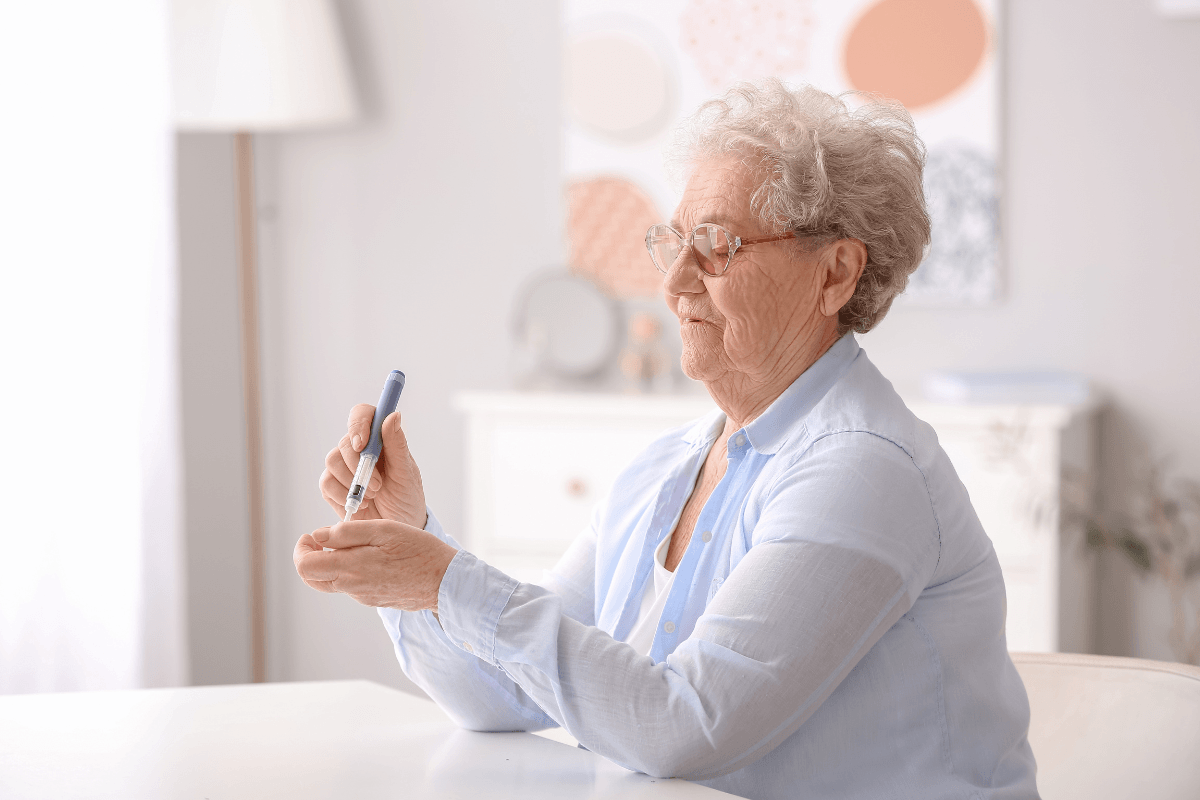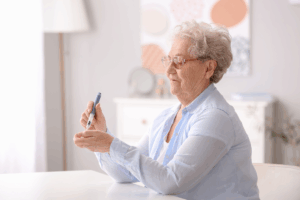Water is something we often take for granted. On a hot summer’s day, reaching for a glass of cold water feels natural—but for many older Australians, drinking enough water throughout the day isn’t so easy. Our Care Professionals understand how quickly a person’s health can deteriorate if they don’t stay well-hydrated. Hydration is a simple, daily habit. Yet, it has a vital role in maintaining overall health, energy, and independence.
At Home Care Assistance, we recognise that many factors contribute to seniors living safe and fulfilling lives at home. It’s worth highlighting a health risk that doesn’t always get the attention it deserves: dehydration. Older adults are more susceptible to becoming dehydrated, but with the right awareness and support, it remains one of the most preventable health issues.
In this blog, we’ll explore why hydration is so important, why seniors face additional risks, and practical steps families and carers can take to help loved ones stay properly hydrated throughout the year.
Why Water is Essential for Health
Our bodies are made up of about 60% water, and every system depends on it to work properly. From controlling temperature and lubricating joints to helping digestion and moving nutrients, water is essential for good health.
For older adults, maintaining adequate hydration helps with:
- Energy levels – dehydration can lead to fatigue and sluggishness.
- Brain function – even mild dehydration can affect focus, memory, and mood.
- Mobility – water helps maintain joint and muscle health.
- Independence – staying hydrated reduces the risk of falls, urinary tract infections, and hospital visits.
When hydration levels drop, the consequences are often felt more quickly and more severely by older adults than younger people. That’s why it’s so important to understand the risks.
Why Seniors Are More Vulnerable to Dehydration
There are several reasons why older adults are at higher risk:
- Decreased thirst response: As we age, the body’s natural signal for thirst becomes weaker. This means many seniors may not feel thirsty, even when their body needs fluids.
- Medication side effects: Diuretics, blood pressure medications, and treatments for certain chronic conditions can all increase fluid loss.
- Mobility challenges: Getting up to fetch a drink, particularly for those using walking aids or wheelchairs, can feel like a big task. Some older adults may also limit their fluid intake to avoid frequent trips to the bathroom.
- Chronic health conditions: Illnesses such as diabetes or kidney disease can increase fluid needs or complicate hydration.
- Hot weather risks: Australia’s heatwaves pose a risk to everyone, but dehydration can occur very quickly in older adults when temperatures rise.
Together, these factors make proactive hydration a critical part of healthy ageing.
Signs and Symptoms of Dehydration
Dehydration doesn’t always look obvious, which is why it can easily be missed. Some of the early signs include:
- Dry mouth or lips
- Headaches
- Fatigue or low energy
- Difficulty concentrating
- Darker-than-usual urine
More severe dehydration may cause:
- Dizziness or light-headedness
- Rapid heartbeat
- Low blood pressure
- Confusion or delirium
- Fainting
For older adults, even mild dehydration can quickly increase the risk of falls, hospitalisation, urinary tract infections, and kidney problems. That’s why families and carers should always keep an eye out for these warning signs.
How Much Water Do Older Adults Need?
The general advice is to drink around 1.5–2 litres of fluid daily, or roughly 6–8 glasses. However, the exact amount varies depending on factors like body size, activity levels, weather, and medical requirements.
It’s also important to remember that water isn’t the only source of hydration. Fluids from soups, tea, milk, and even water-rich foods such as melons, cucumbers, and oranges all contribute to daily intake. For those who find plain water unappealing, these options can make hydration more enjoyable.
Practical Tips for Staying Hydrated
The good news is that small, simple changes can make a big difference. Here are some easy strategies to encourage better hydration:
- Keep water nearby: Place a jug, bottle, or glass of water within arm’s reach, whether sitting in the lounge room or at the bedside.
- Set reminders: Alarms, smartphone apps, or gentle prompts from carers can help establish a drinking routine.
- Pair water with meals and medications: Encourage a glass of water with breakfast, lunch, dinner, and each dose of medication.
- Add natural flavour: Fresh lemon, cucumber, berries, or mint can make water more appealing without added sugar.
- Offer hydrating snacks: Fruits, vegetables, and yoghurt not only nourish but also contribute to fluid intake.
- Plan for the weather: Encourage extra fluids during hot days or when engaging in activities that might cause sweating.
By weaving hydration into daily routines, it becomes less of a task and more of a natural habit.
The Role of Carers in Supporting Hydration
Staying on top of hydration can be difficult for older adults living alone or those managing health conditions. This is where professional in-home carers play an essential role.
Carers can help by:
- Monitoring how much water is consumed throughout the day
- Encouraging regular drinks and offering gentle reminders
- Preparing hydrating meals and snacks
- Noticing early signs of dehydration
- Assisting with mobility or memory challenges that may make accessing fluids difficult
At Home Care Assistance, our Care Professionals are trained to provide not only physical support but also companionship and encouragement. This makes it easier for older adults to stay on track with healthy habits like hydration—while giving families peace of mind.
Special Considerations: Dementia and Other Conditions
Hydration can be particularly challenging for people living with dementia, as they may forget to drink or struggle to communicate thirst. In these cases, carers play a vital role in creating routines, offering drinks regularly, and using positive encouragement.
For those with conditions that restrict fluid intake (such as some kidney or heart conditions), carers can also work with families and healthcare providers to ensure fluid levels are carefully balanced.
What Does This Mean?
Hydration is one of the simplest yet most powerful ways to maintain health and independence as we age. For older Australians, drinking enough water can mean the difference between feeling alert and comfortable—or experiencing confusion, falls, or hospital visits.
By staying aware of the risks, watching for early signs of dehydration, and putting simple strategies in place, families and carers can make a real difference in daily wellbeing.
At Home Care Assistance, we understand that small habits, such as drinking water, add up to significant results in overall health. Our Care Professionals support older Australians every day in living safely, comfortably, and independently at home.
Support at home from a specialist provider, such as Home Care Assistance, can bring enormous benefits and comfort to your quality of life while living independently at home. Home Care Assistance offers viable solutions for supporting independent living. For more information, get in touch with a Home Care Assistance near me today.
As a leading age care provider, Home Care Assistance offers tailored in-home care services for older Australians, enabling them to live happier and healthier lives in the comfort of their own homes.
We offer private and government subsidised Care Packages and have office locations that are a registered NDIS provider. Our Care Workers undergo extensive training in order to deliver unmatched in-home aged care services where people can continue ageing in place. We are proud ambassadors of the My Aged Care government funded aged care program, enabling Australians to successfully navigate the process and gain approval for in-home care support packages. Home Care Assistance offers hourly care, specialised care, Alzheimer’s and Dementia care, hospital to home care, and 24 hour in home care.













